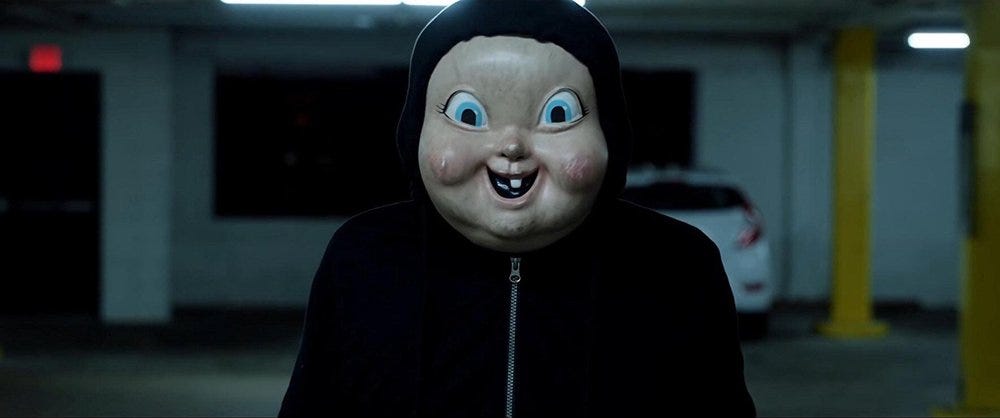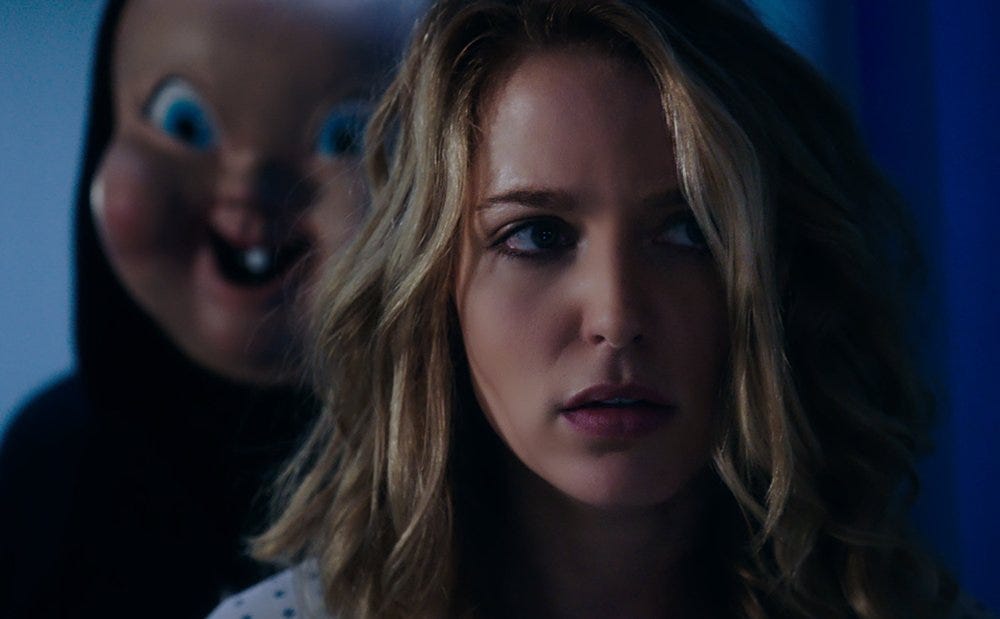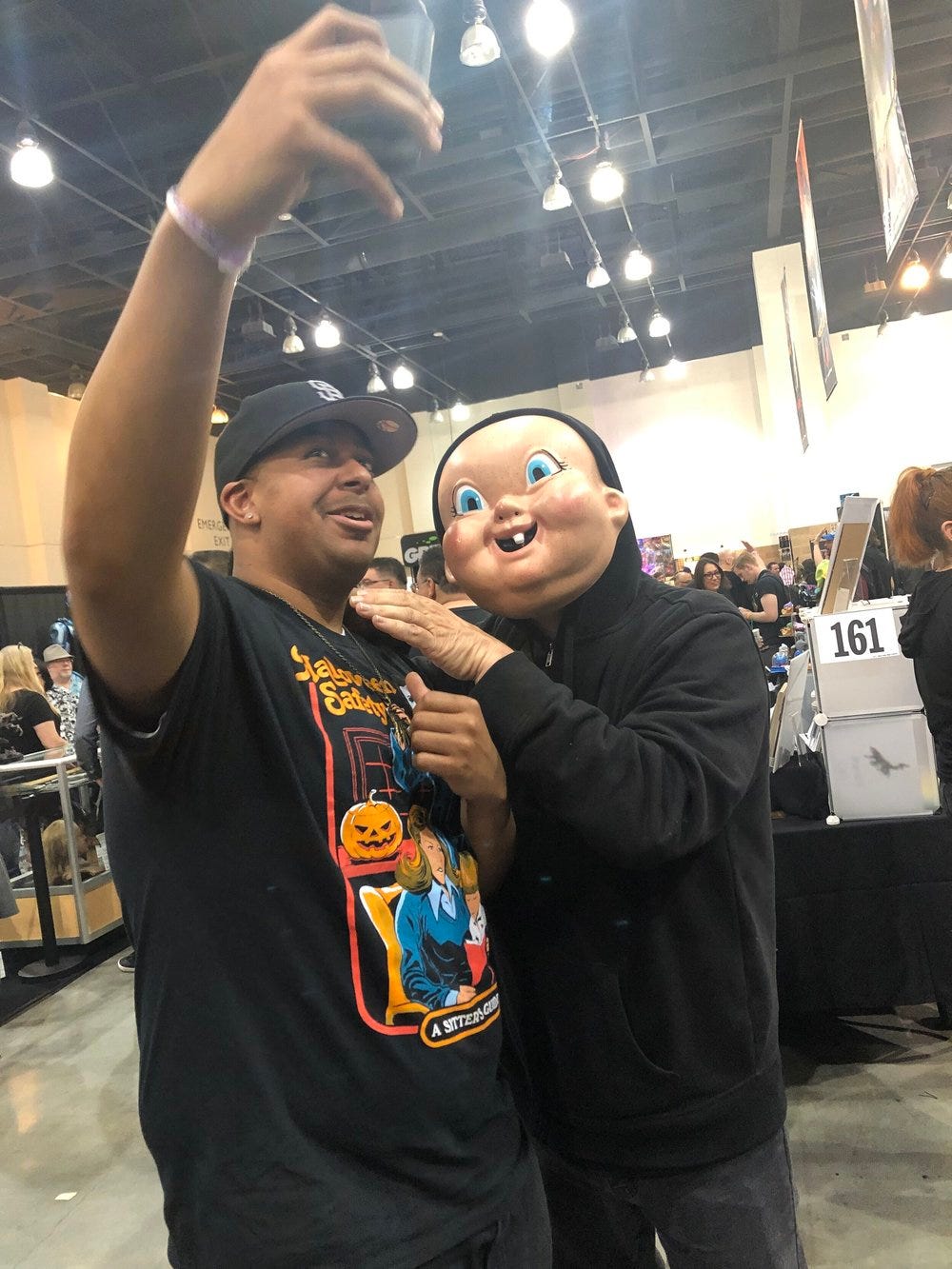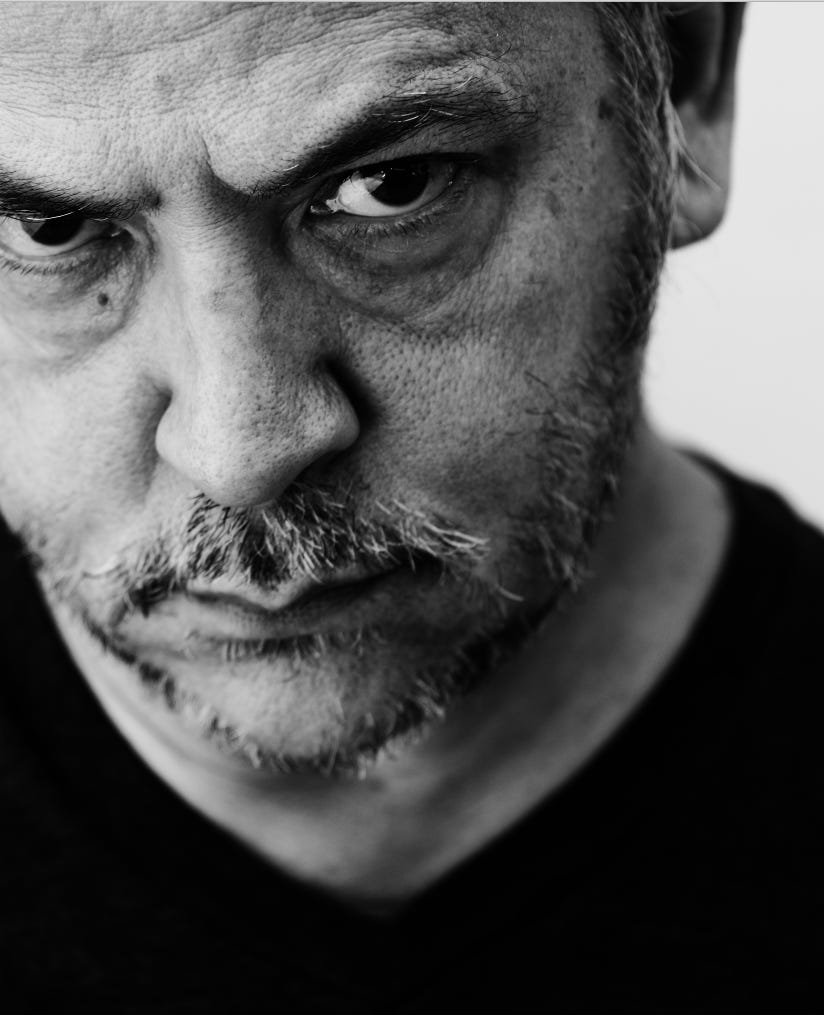Interview: "Happy Death Day" Screenwriter Scott Lobdell
HBO currently has Happy Death Day and Happy Death Day 2U on its film streaming roster. Did you make it a Blumhouse Productions double feature night? If yes, you watched an idea created by Marvel comic book writer turned screenwriter Scott Lobdell.
The Happy Death Day films have a broad appeal unlike any recent movies. I like them, my dad, people from every lifestyle and regional culture. When you were starting with the writing process, was it open or did the studio and director give you ideas of the story direction?
Happy Death Day was a spec script. I had met with Angela Mancuso, a producer, over coffee -- our first meeting -- and she asked me what I was working on. I rattled off a few thoughts I had for scripts and when I got to the story about a sorority girl who gets brutally murdered and keeps reliving the same day over and over until she can figure out who her killer is and how to stop them... and Angela insisted that was the one I had to write.
I was living at the beach at the time, and my comic book writing for the month was completed, so I decided to turn off my phone and the Internet and just write. Four weeks later, I had the script for the movie that was originally called Again, A week later it had sold to Rogue Pictures, what was then the genre arm of Universal Pictures.
The thing you said about you and your dad and everyone else across the globe liking this movie? I spent a lot of time laughing when I wrote it because all I kept thinking was "This is the most subversive horror movie ever written! People are going to show up for a slasher flick and walk away with a female empowerment story about a person who only learns to appreciate her life and those around her when she's confronted with death." Yeah, I was acutely aware of the Groundhog Day motif at the heart of the movie, but what was so fun is we the audience have never seen it used to tell a good old fashioned whodunit. Most slasher movies are about showing us all the different ways the killer can stalk and filet his prey -- but this was a movie that focused on the "Why?!", Tree trying to figure out why the killer was trying to kill her because that was the only way to stop them. (Michael, Jason, Freddie -- not a lot of investment into the motivation of the murders, traditionally.)
So yeah, it always felt like I was writing a bunch of movies in one movie which was a blast.
Were you afraid of how the first film might be received and also perform financially with its genre bending storytelling?
Actually, after seeing the first cut of Christopher Landon's movie, I was convinced that we'd wind up earning 100 million at the box office, domestically. It was funny, it was scary -- it was the only horror movie I'd ever seen where you wind up crying in the middle!
I was going around and telling everyone I knew that this little movie was going to make a hundred million dollars -- how exciting was that?!
All my friends and people in the industry were trying to tamper my expectations because they didn't want me to get my hopes up. "Scott, you'll be lucky if the movie even opens in the top five. It's an original, small budgeted movie with no stars... and it is a hybrid caught between horror movie and comedy. Oh, and it is opening in the wake of a long-awaited sequel to a beloved sci fi franchise, Blade Runner. So... cool your jets." I just laughed and said "They are my unreasonable expectations and I'll keep them sky high, thank you!"
As it was we "only" did slightly more than half that domestically and more than that worldwide, but it is hard to feel like you've crashed to Earth when your spec script winds up opening as the number one movie in America its first weekend. (When ever people tell me they are playing Devil's Advocate, I assure them the Devil has enough advocates and I don't really need to hear from another.)
To me, it’s almost as much a science fiction series as a horror series. And I would be worried with the ads and everything selling the film properly were I in your shoes then. For readers, one wrong move can shut down other people’s risk taking films at a studio with claims like “audiences aren’t ready for a change.”
For starters, I think the audience is always ready for a change. (I have insight into this because I'm part of the audience.) I think collectively the audience is begging for change... and I think we've seen so many examples of this over the years that I don't know why the majority of movie and television studios haven't figured it out. Yeah, we've seen crooked cop shows and we've seen mafia shows like The Sopranos... but who thought a nation would sit transfixed by the story of a science teacher with cancer becoming a meth kingpin to support his family? Who could ever have imagined the cable company who gave us Sex And The City would eventually bring us the most expensive, cut throat, sexiest. politically intriguing fantasy story that every person in the world eventually watched?
Movie Gods, I know you are reading this -- we are always ready for change!
Regarding the "science fiction" roots of the franchise, people may not realize this but I was not involved in Happy Death Day 2U. Christopher had a very definite direction in mind, which is what played out on the screen. (And while Happy Death Day took a sharp turn into sci fi comedy, as you pointed out, the original intent and the marketing for the first film was firmly planted in the horror comedy milieu.
I've never talked about this in print before, but I -- like Christoper -- had always imagined Tree's story as a trilogy. My plan was to keep the horror element front row and center, but to mix it with other genres.
HDD2 would have been an epic love story... where Tree was going to find herself a year later, having moved on, become a better person. When she's killed again she takes a breath and says "Its okay, I've done this before. I can figure this out if I keep my head together." She's surprised to learn there is another student who is also reliving the day. As the day passes and they come to rely only on each other, they fall in love... and are surprised to learn that only one of them is going to be able to move onto the next day. The other is going to have to spend the rest of their life trapped in the loop. Oh my God, I'm welling up over the tragedy of it all already.
HDD3 was going to find a self-actualized Tree speaking at her college graduation... when a bus is accidentally driven through the ceremony and a bunch of people are killed. She kills herself in the chaotic aftermath because she knows it is the only way she can reset the day and stop it from happening. (So the world's most selfish girl in the first movie has come full circle as now she's willing to sacrifice her life for friends and strangers!) But the more she investigates the more she learns it wasn't an accident at all. And worse... for the first time in a loop, the killer is reliving the day as well! A time loop as a cat and mouse?! Who doesn't want to see that movie?
You started in comic books before being a screenwriter. Comic book fans surely know everything you are responsible for, but for those who don’t, you worked with X-Men stories, Daredevil, and other material many today are familiar with from first meeting these characters on screen. I’m going to take a wild guess and say you probably disagree with Martin Scorsese’s views that comic book films are not real cinema, right? What would you say to him if you were at lunch with him right now convincing him otherwise?
I'd make sure he was picking up the tab before we ordered because I'm guessing it would be a really fancy place.
But, honestly, I have a very low threshold for what I would define as "real cinema." If it is a movie that makes me feel something other than crushing disappointment or, say, boredom, then I consider it real cinema.
Everyone one of us makes our own bond with a movie -- whether we watch it in a crowded theater or alone late at night on the cell phone. One of my favorite movies ever was a long-forgotten film called Hero At Large starring John Ritter and Anne Archer. It came out in 1980 and thirty years later I get excited just seeing the trailer. It was funny, it was sweet, and it made me wail like a baby when she tells him to go away, that he was never really any hero at all if he didn't believe himself. I still get a rush when he doesn't think twice about risking his life in the end even after the whole city has turned on him. Sigh.
You can't tell me that's not "real cinema."
Let people enjoy what they want. That's my motto.
That said, Mr. Scorsese is more than entitled to his own opinion. If he doesn't like super hero movies, that's fine. I don't know why super hero directors feel the need to defend themselves or poo poo Mr. Scorsese's opinion. (In the days before Twitter and the internet people used to agree to disagree. Wha -- ?!)
How much of the Death Day storyline is taken from something that could be a comic book, in your view?
Certainly, 100%!
I've tried several times to get Universal to grant me the comic book rights to the franchise. But alas.
(Secret Happy Death Day Factoid: There was even an X-Men reference in the original script! Carter was more of a comic nerd than an all-around nice guy nerd, and he suggested Tree read Uncanny X-Men 141-142 in an effort better understand time loops! But if she didn't know who Bill Murray was you can bet she had no familiarity at all with Kitty Pryde.)
A super cool story about your work within Marvel: you helped the character Northstar live as openly gay when it was very often scary for non-fictional LGBT people to be openly themselves. And years later, that storyline progressed into a same sex wedding in 2012! To better put this in perspective for readers, this happened before Ellen DeGeneres’ character came out on her sitcom, or the existence of the first Queer Eye. This was a pretty big deal to comic book fans. How did this move by you end up changing comic books and, movies if so, from things you have heard? Fans’ lives?
The story was printed in 1992, and I don't think I've been to a convention (and often store signings) since that someone hasn't asked me to sign their copy. Sometimes it is tossed in the pile without comment, but often there is a conversation where someone will share how much it meant to them -- how they needed that comic book at that moment in their lives. No matter how many time I hear it it still makes me happy to feel something I wrote could have such an impact on a stranger's life.
The intent at the time was not to make any profound statement or to become pop culture touchstone. When I took over the book I tried to figure out why Northstar was such a pill to his friends and family. I realized it was because he was so anxious about being outed that he kept everyone at a distance -- you couldn't judge him if you didn't know him. By outing himself he removed the self defense that had been erected around him and he was at long last able to be himself. (God, how liberating that moment must be.)
That the story came to mean so much to so many people was just unforeseen blessing.
Other countries cut out LGBT scenes or ban the films entirely from being screened locally. Do you think this is the reason we don’t have more LGBT comic book film plot points, or are we worried about offending people here within English speaking markets?
One of those age-old questions. Are creatives stifled by editorial or business decisions, or do they fear editorial or business concerns and so they never challenge them?
There is a gay character of some prominence in Happy Death Day... I haven't seen any foreign versions of the movie (it even opened in China) to know if his scenes were excised. Anyone?
Did you get any hate mail with the character’s new openness?
Not a one. And I read hundreds of them. I have a memory of one of those fish wrap grocery store tabloids did an over the top "this is what's wrong with the world! Think of the kids!" article but it was more parody than anything else.
I would love to take some small credit for blazing a new path at the time... but I'm of the philosophy that human beings are infinitely more tolerant and eager to celebrate our differences than we're given credit for.
Are you working again with Blumhouse Productions?
Not at the moment -- but the door is always open!
My emphasis is on "bigger" movies. Maybe it is my comic book roots or because of my nostalgia for old-fashioned auction movies like Die Hard and Speed, but those are the movies that interest me at the moment. None of which fits in the Blumhouse business model.
But certainly if I write another horror hybrid Jason will be my first stop!
What other scripts do you have hoping for them to be made by any production company?
I've written a spec script with my best friend, John McLaughlin from Black Swan fame. It is called Odin and it is the story of a white German Shepherd whose owners are killed and he tracks down and murders the five culprits. Yes, it is a revenge movie starring a dog! (The internet has graciously nicknamed it "John Lick"!) It is an infectiously glorious script that I genuinely believe does for the moribund vigilante movies what Happy Death Day did for the slasher flick at just the right time. Oddly, the script was excitedly embraced at the studio level but was shot down everywhere by the marketing people who confess they don't know how to market an action adventure movie about a dog with vengeance on his mind.
But I just saw a Netflix episode about Dirty Dancing where the producer reveals the script got 42 rejection letters before it was finally made.
Tree's story took ten years in the making... so I'm not worried that Odin isn't going to find a home.
Currently I'm working on a spec script for a huge action adventure family movie that is sort of a Swiss Family Robinson meets Jumanji. As you can see I'm a big fan of the high concept genre mash-up.
What would you say is the part of a screenwriting career few see...the hard stuff?
Hmm. To me it is the OWA.
Or, Open Writing Assignments. I'll give you an example.
My agent will hear about a project at a studio that is looking for a writer. Sometimes it is based on an existing script (a remake, a reboot) or an intellectual property (Etch-a-Sketch The Movie. I made that up.). You can really go into a meeting with a basic idea and wing it (at least I can't) -- so if you go into the meeting you have to have like 90% of the movie in your head.
By the time you get into the room to pitch you've fallen in love with this movie that has been rolling around in your head for the past week or three. (How can you not?! It isn't like you are going to pitch a movie you don't like. Who would do that?)
It is heartbreaking when you hear the project went "in another direction" -- and now here you are with characters and concepts and scenes you love that will never see the light of day because they weren't yours to begin with. The worse necessary evil that comes with being a screenwriter.







